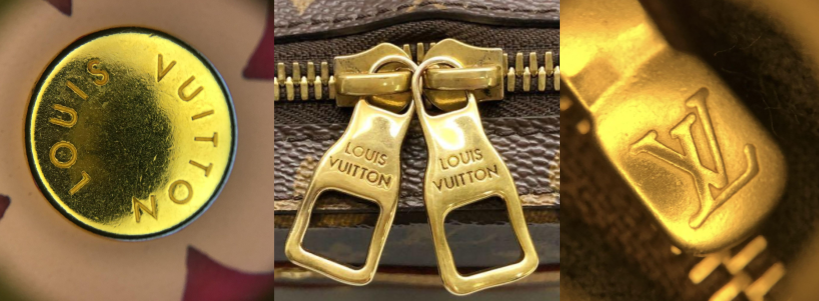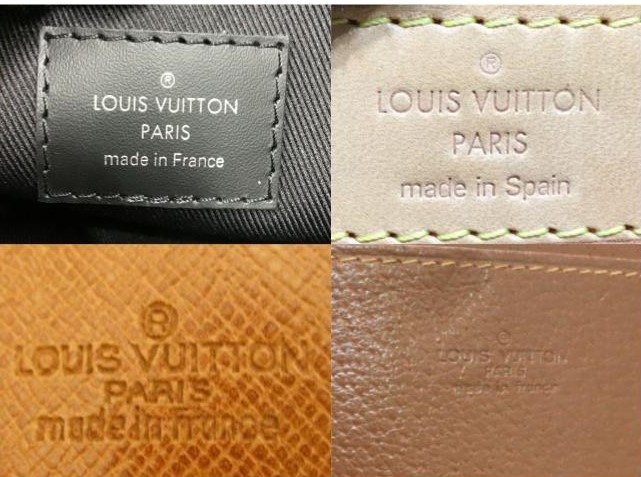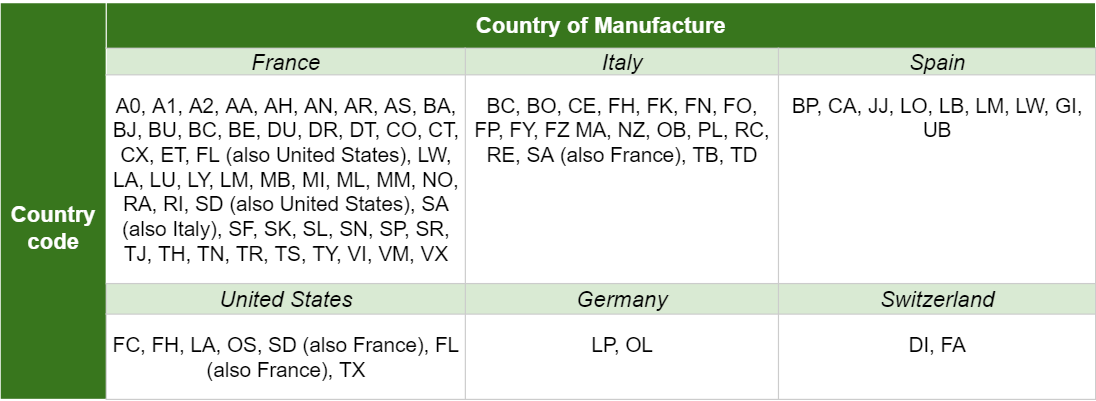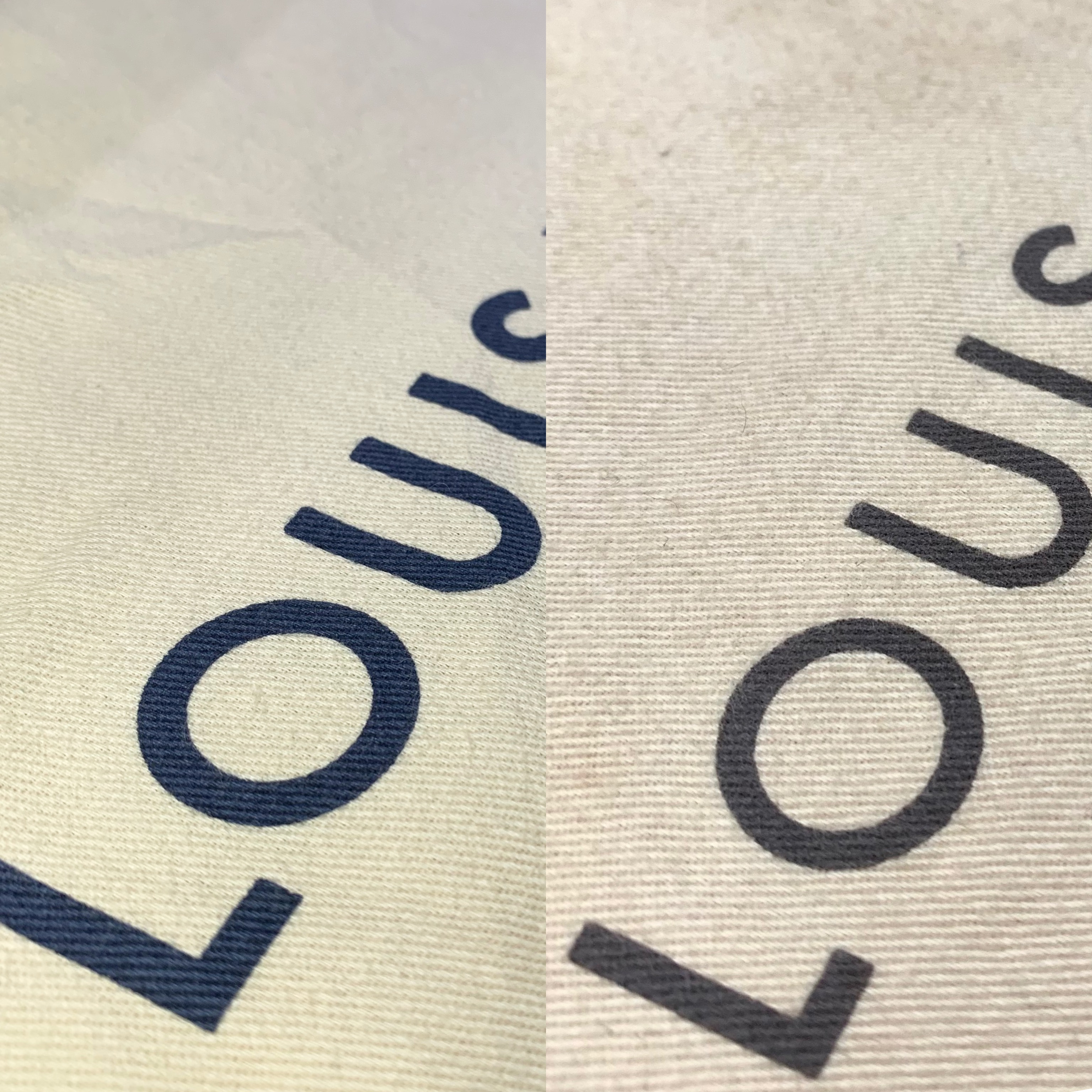Louis Vuitton is a brand beloved by counterfeits. Not only does the world-renowned company dominate the luxury market, it’s a brand so deeply rooted in its heritage that many of the House’s designs, materials and techniques are still used decades after decades. This unfortunately creates time for counterfeiters to develop near-perfect replicas to capitalize on this ever-increasing consumer appetite for the House’s products.
As Louis Vuitton constantly challenges the boundaries between craftsmanship, art and design by consistently producing a wide range of products and expanding its catalogue, authenticating your brand new or pre-owned LV bag may be overwhelming and daunting. But fret not! We are here to help you with these tips and tricks to authenticate your bag!
Point 1: Check the hardware
Authentic Louis Vuitton hardware should be of high quality. Many believe that authentic Louis Vuitton hardware should not tarnish. However, this is simply untrue. Most modern day Louis Vuitton hardware is made of plated metal. As such, the finish on authentic Louis Vuitton hardware does in fact chip, flake or wear off over time. Padlocks are one of the few types of hardware that are made of solid brass. However, logo stamps on authentic hardware should always be centered, clear and evenly stamped. To avoid purchasing a counterfeit, ensure that there are no areas with unevenly plated hardware or poor engravings.

Authentic hardware should be consistently engraved as seen above.
Point 2: Check the stitching
Louis Vuitton is known for their attention to detail and this can be observed in the stitching. Louis Vuitton uses high-quality linen thread which has been strengthened with beeswax. Each stitch should be perfectly consistent in size, distance and quality. The number of stitches on one side of the handle should also match the number of stitches on the other. For Speedy bags, there should not be any stitches on the bottom, unless it is a special edition or variation.

Authentic stitching should be consistent as seen above.
Point 3: Check the leather trademark stamp
When authenticating a Louis Vuitton bag, one of the first areas that should be checked is the trademark stamp featuring the Ⓡ icon. For newer and current Louis Vuitton leather goods, there are a few features of the trademark stamp that you should look out for:
The “O” letters in LOUIS VUITTON should be perfect circles (not ovals).
The tail of the “L” letter in LOUIS VUITTON should be very short.
The “T” letters in LOUIS VUITTON should be so close together that they almost look like they are touching but are not.
The letter “N” in LOUIS VUITTON should form a square when two horizontal lines are added to its top and bottom.
The letterings should feature consistently thin and crisp lines of equal embossing depth.
However, for many older Louis Vuitton leather goods produced before the 1990s. it is common for the trademark stamp to use a different font. In such cases, authenticity can be confirmed through other factors.

Modern authentic stamps (top row) use a different font from older stamps (bottom row).
Point 4: Check the date code
Since the 1980s, Louis Vuitton has been using a date code system consisting of letters and numbers to determine the location and time the handbags were manufactured. These date codes are found in the interior of the bag, either printed or embossed on a rectangular piece of leather or directly embossed on the side near a seam. The code should consist of two letters followed or preceded by four numbers. The first two letters correspond to where the bag was made while the subsequent four numbers indicate when the bag was made. It is important to verify that the location where the bag was manufactured indicated on the stamp corresponds to the “made in” stamp.

Another important step that you should take is to check if the date code makes sense. Bags made from 2008 to present have date codes where the first and third numbers represent the week, while the second and forth represent the year the bag was made. On the other hand, bags made from 1990 to 2006, have date codes where the first and third numbers represent the month of the year the bag was made, not week.
For instance a date code that reads MB4028 (below) would suggest that the bag was manufactured in France in the 42nd week of 2008. An example of a counterfeit date code might read BC5537, which foolishly suggests that the bag was made in Italy in the future-on the 53rd week of 2057.
In some cases, counterfeits may use date codes that do not match the time of production of the model as well, usually in cases where limited production items are copied.

Authentic date codes found in the interior of bags.
There are a few exceptions to this rule. Louis Vuitton bags before the early 1980s do not include date codes. Additionally, all Louis Vuitton bags as of 1st March 2021 no longer include date codes but rather microchips that have been embedded discreetly in the products.
Point 5: Check the packaging
Authentic brand new Louis Vuitton bags do not come with price tags or brand tags hanging from the handles of them. Handles should also not be wrapped with plastic or paper. Generally, many counterfeits do not replicate the material or colour of the box, paper bag, and dust bag well.
For reference, dust bags before 2004 were beige flannel in colour with the LV logo and thick dark brown drawstring (older models have come with blue drawstrings isntead). Dust bags between 2004 and 2016 are manufactured of beige cotton or linen, with the logo printed clearly in in the center in dark brown. Dust bags from 2016 are more cream-coloured with dark navy blue writing. Although textures will generally require experience to differentiate, it is possible to compare the appearance of these accessories to photos of authentic items.

Logo printed on dust bag post-2016 (left) versus dust bag from collection between 2004 and 2016 (right)
While these tips and tricks will help you significantly, it is important to remember that this does not guarantee the authenticity of your Louis Vuitton. Ultimately, it is still crucial to purchase from and sell to a reliable and trusted luxury dealer.
Here at EcoRing Singapore, all luxury items are carefully examined by our well-trained and experienced appraisers before being bought in and sold. From Louis Vuitton bags, to Montblanc fountain pens and Coach charms, we have dealt with a wide variety of luxury items.
Interested in selling your pre-loved branded items? WhatsApp us at wa.me/6590931843 with photos and details of your items for an estimated quotation!




